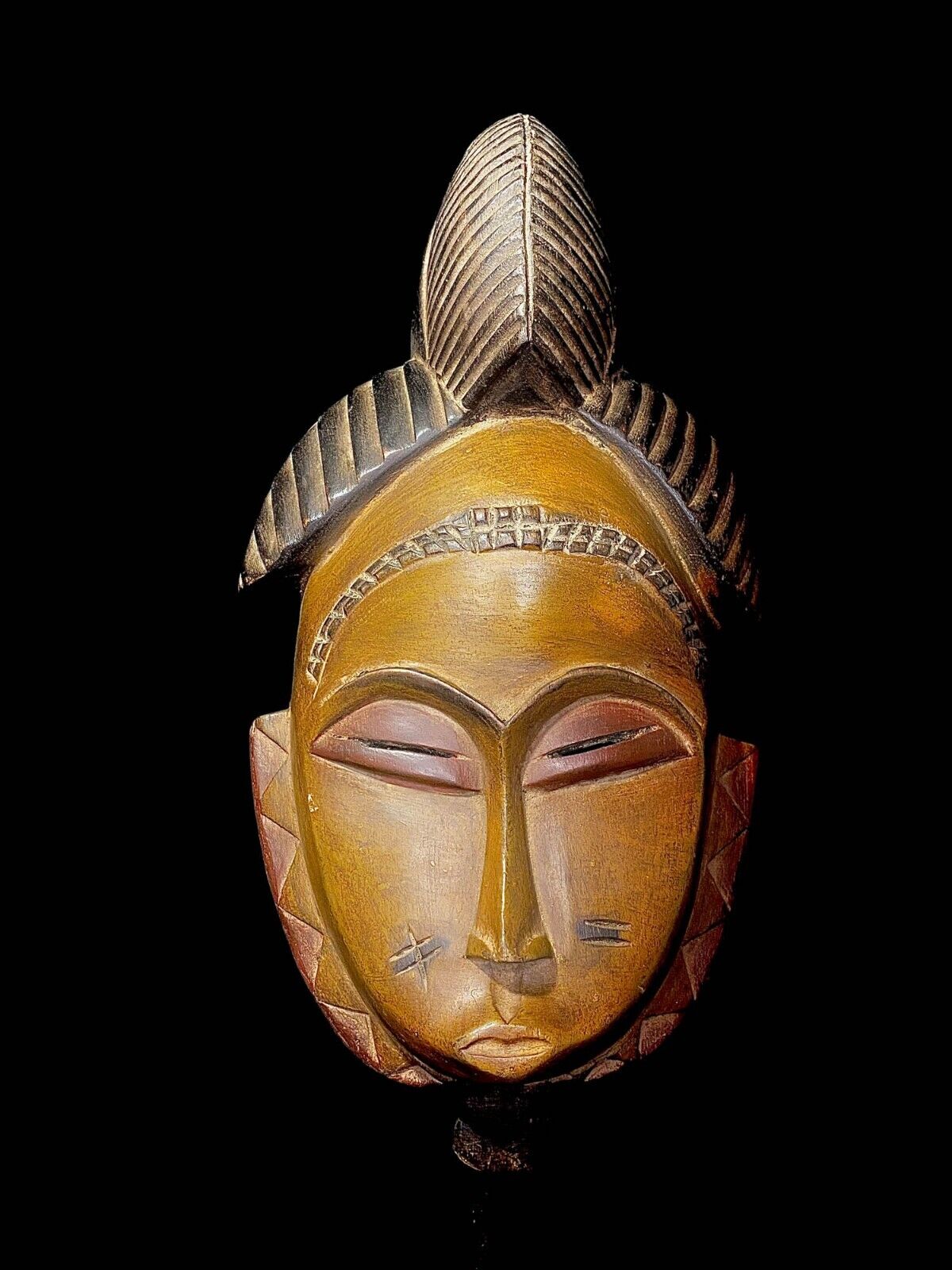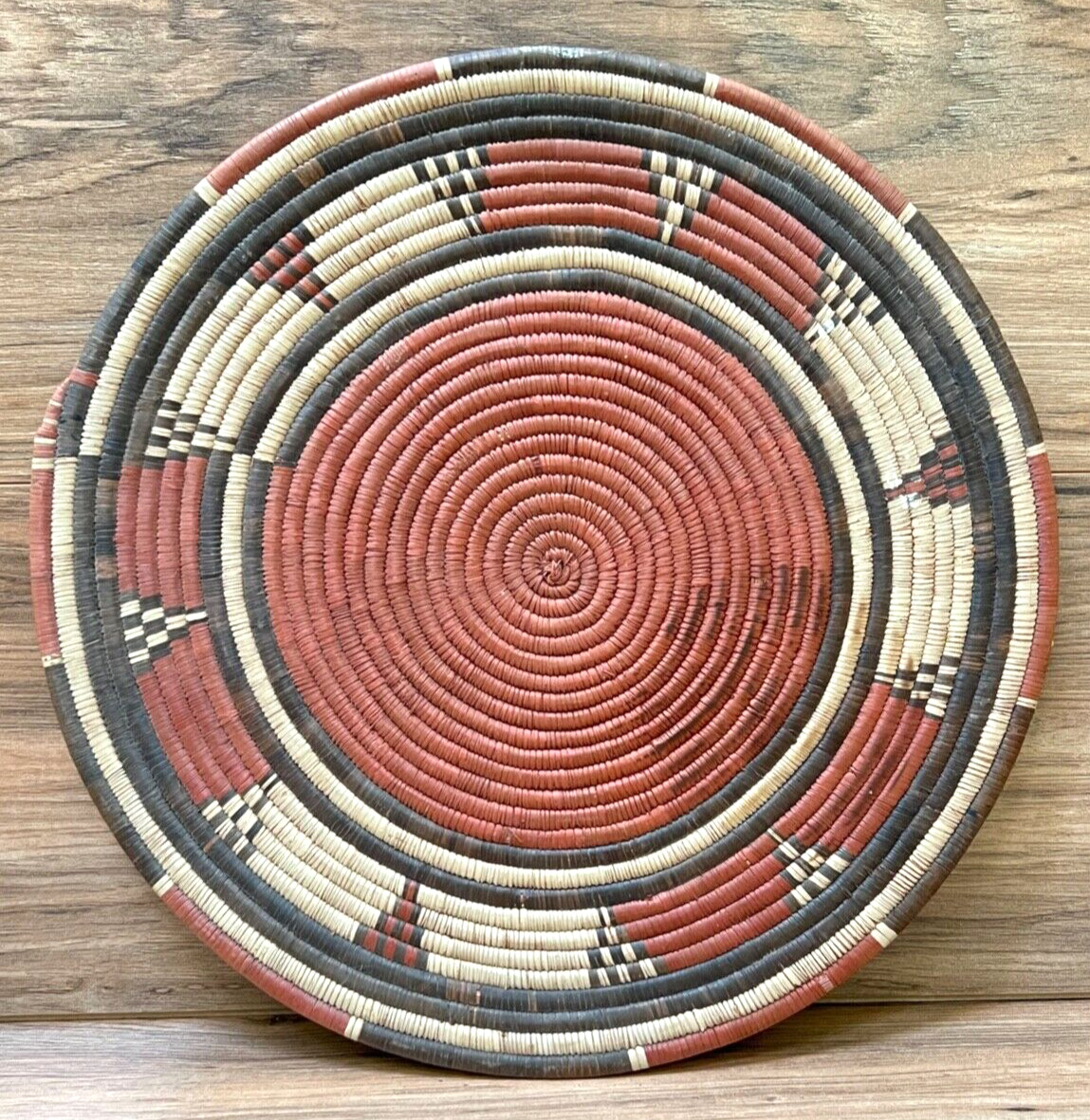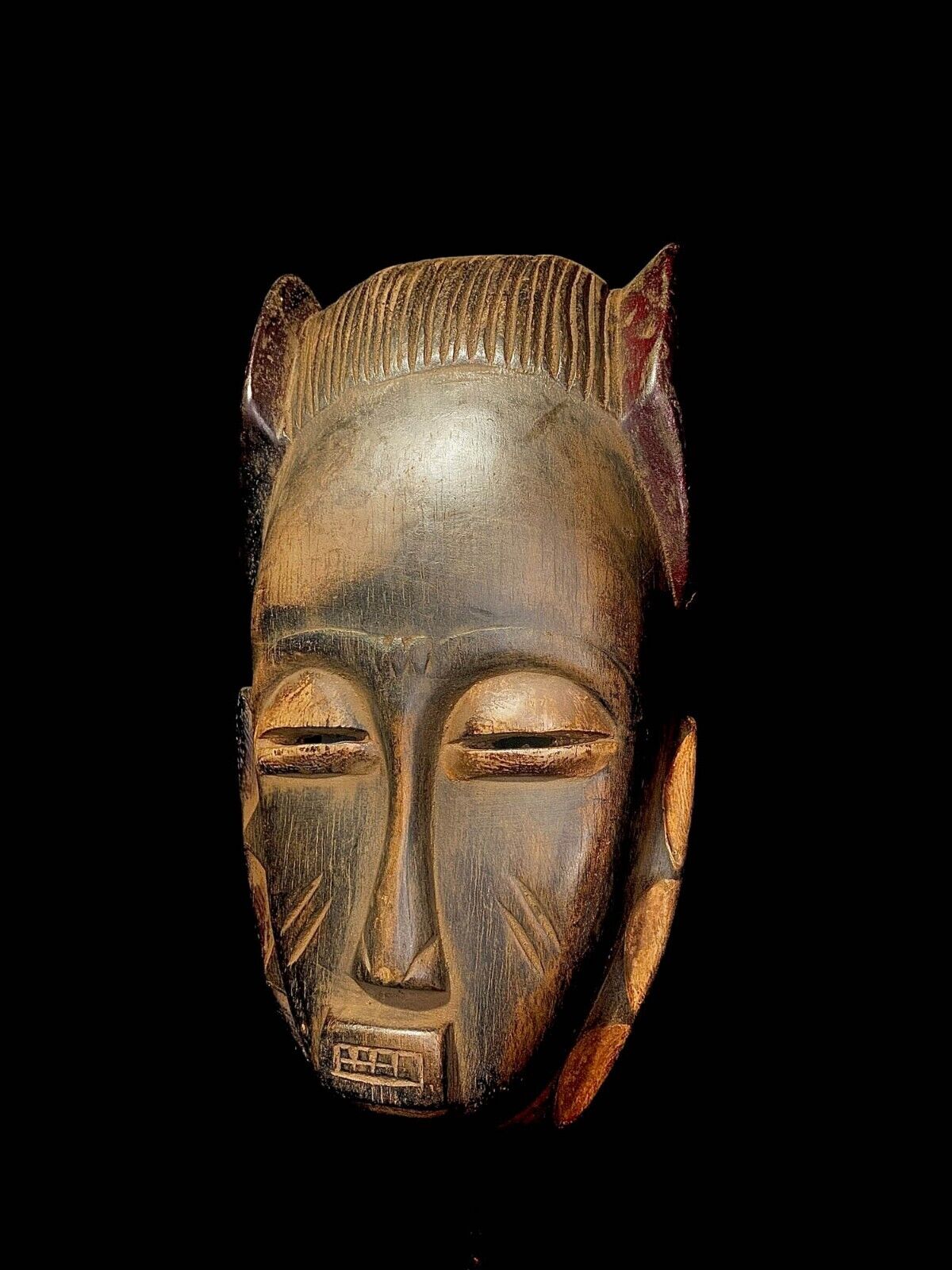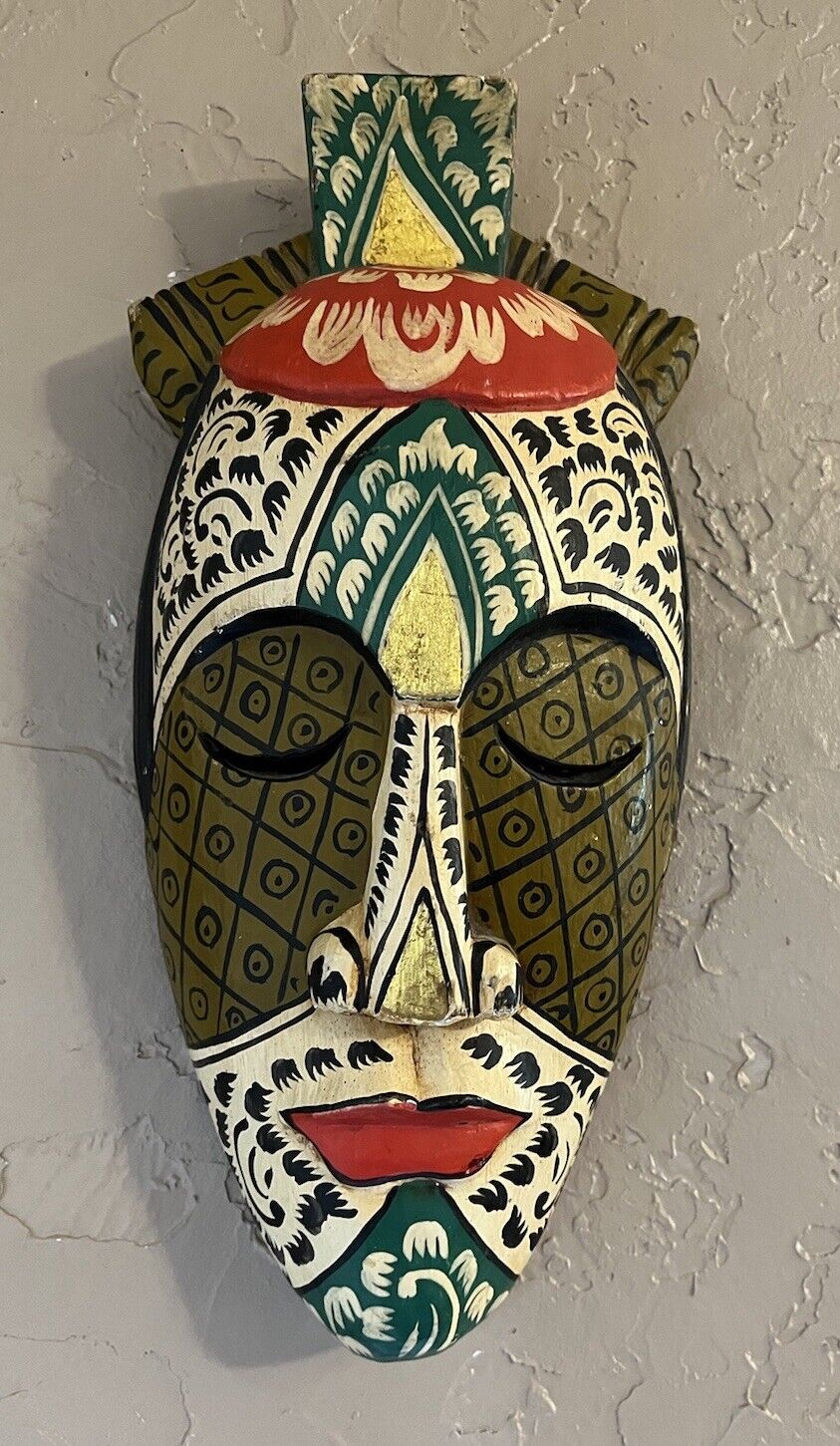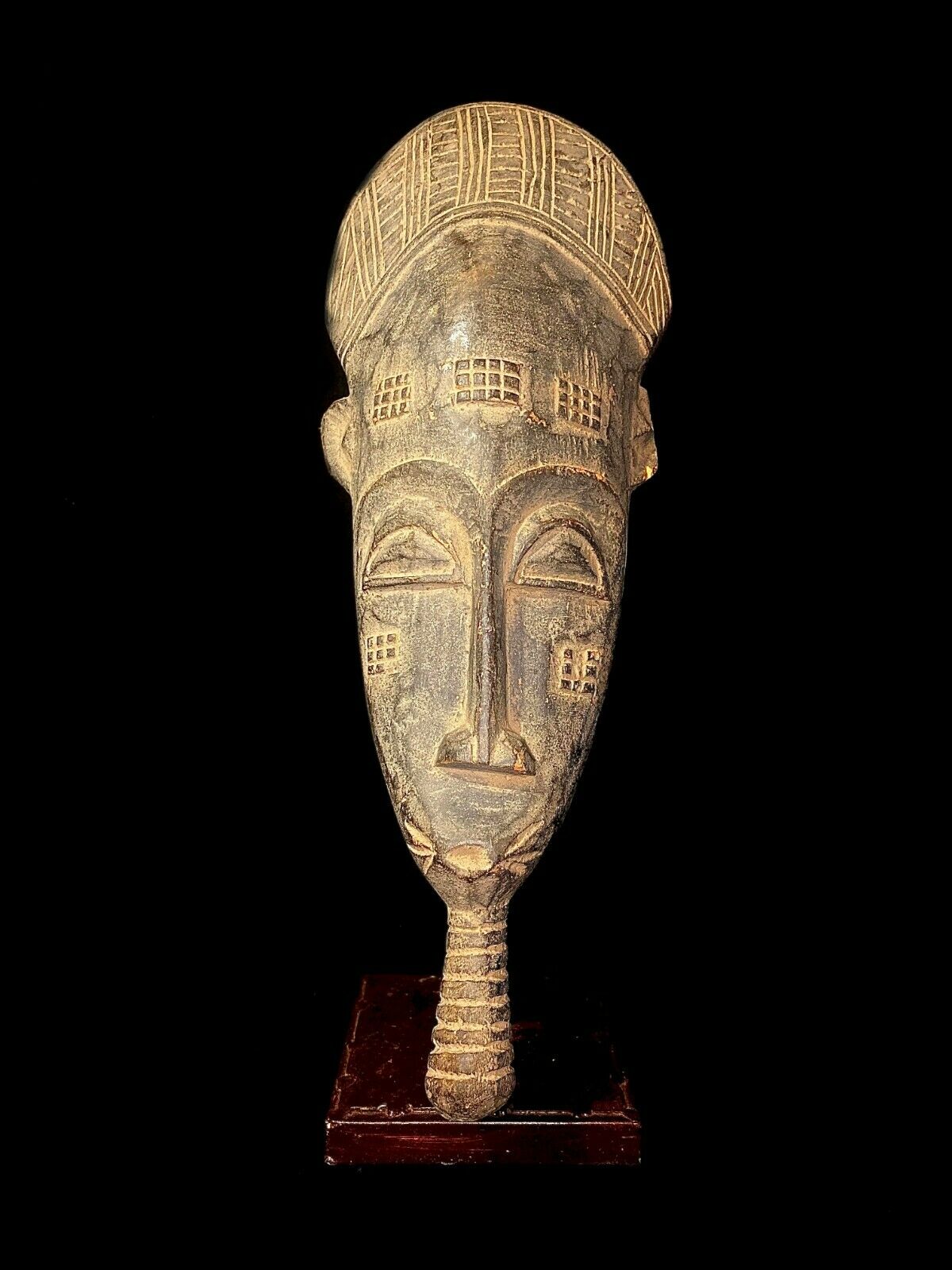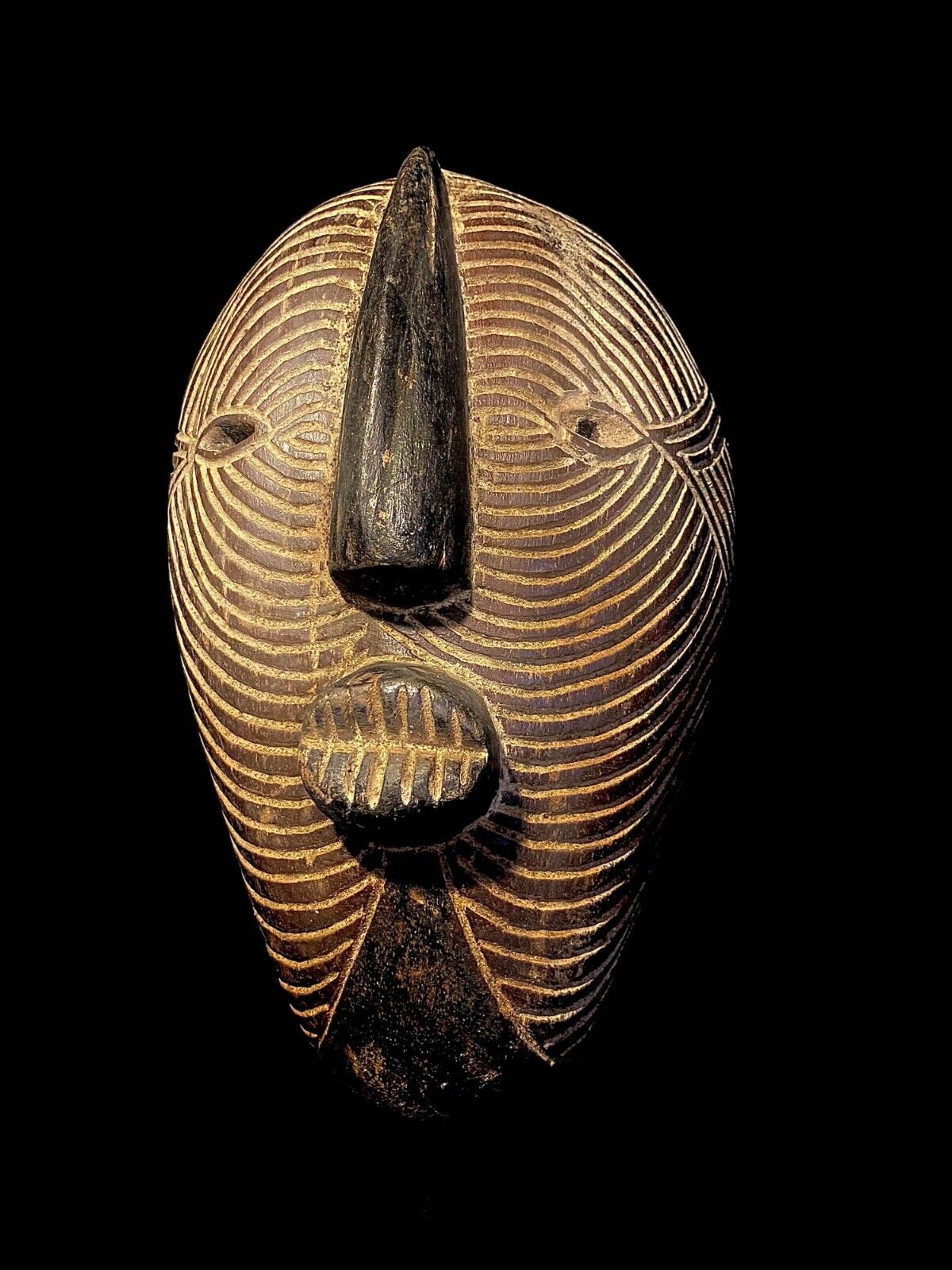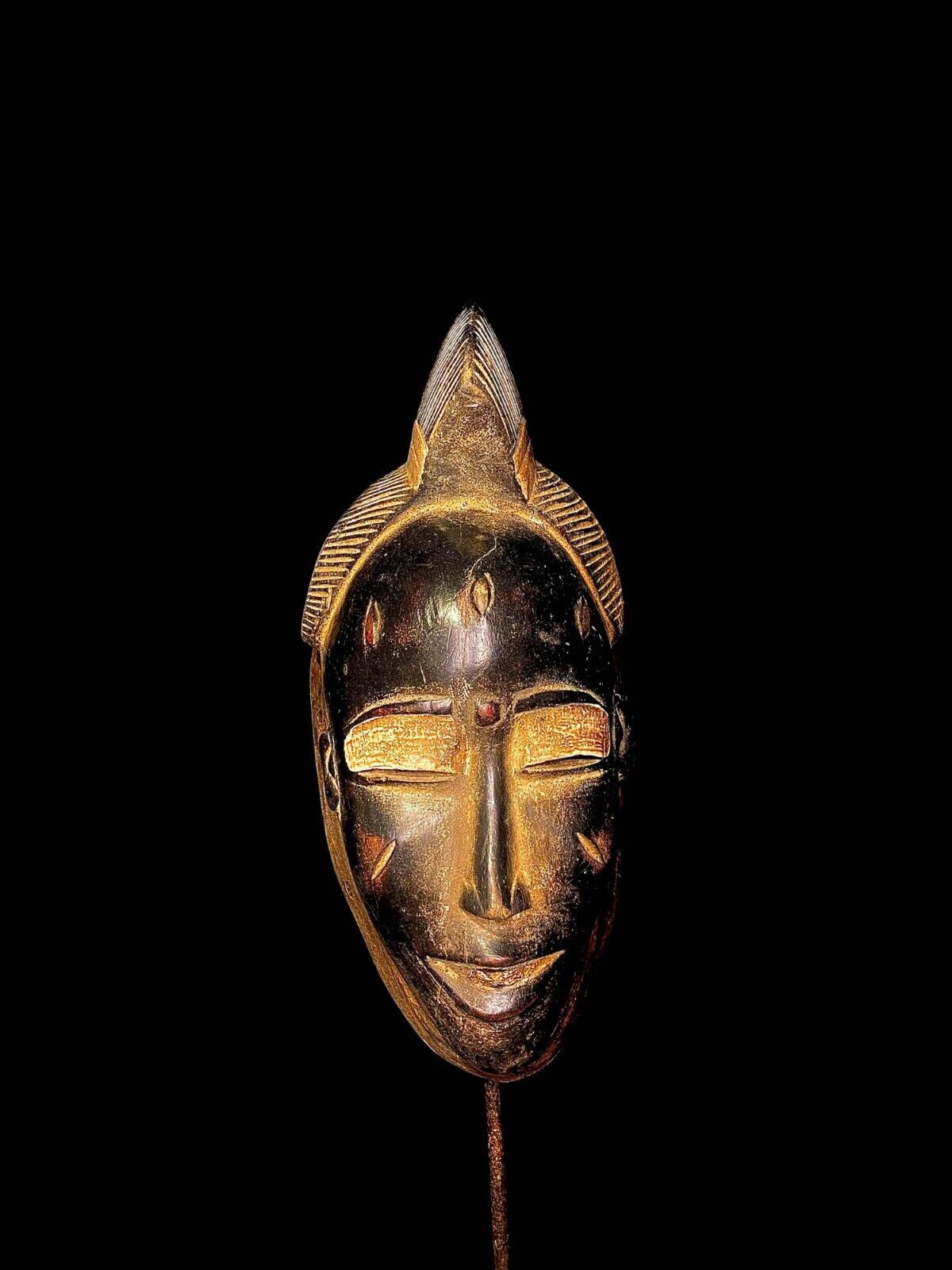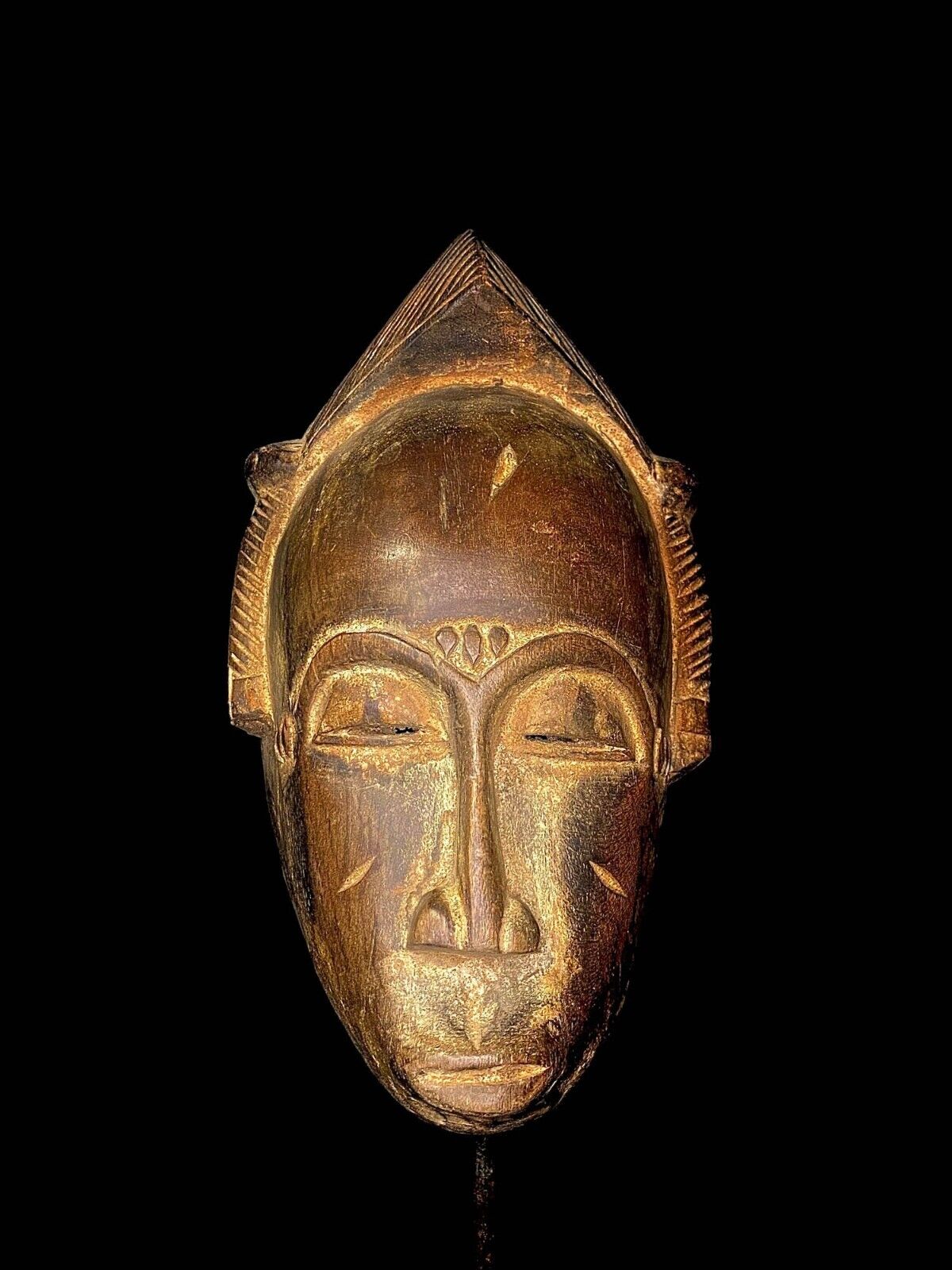-40%
Handmade, rare, mask of African tribal wood, antique and unique design 315
$ 52.52
- Description
- Size Guide
Description
Lunda Makishi maskStore
Everything a collector needs,
https://www.ebay.com/str/theblackcontinent
Everything a collector needs,
https://www.ebay.com/str/theblackcontinent
105$
150 $
Lunda Makishi mask
Mask having benefited from an indigenous restoration thanks to wicker rods. The textile shows a braided headdress, which is worn on a basketry frame. Smooth patina, satin finish, light golden brown. . Of Lunda origin, the Lwena emigrated from Angola to Zaire in the 19th century, driven out by the Chokwe. When some became slave traders, other groups found refuge in Zambia, forming the Luvale , Lovale . Their society is matrilineal, exogamous, and polygamous. The Lwena and the Luvale became known for their sculptures embodying figures of ancestors and deceased chiefs, and their masks related to the initiation rites of the mukanda, a secret male association shared by all these groups in this same territory, albeit with some variations . Their sculpture was largely influenced by that of the Chokwe. The masks of the Chokwe, Luda, Luvale/Lwena, Luchazi and Mbunda clans are called "makishi" (sing. likishi) in Zambia. This name comes from "kishi", a Bantu concept that evokes the manifestation of a spirit or ancestor. These agents of social, moral and spiritual order, forming a panel of different characteristics, sociable, aggressive, or unpredictable, embody the spirit of an illustrious ancestor (male or female), their appearance is mainly manifested during the rites of mukanda, including circumcision, during which their true identity must remain hidden from the eyes of the layman. Their accessories and behavior, depending on the case, symbolize moral values, emphasize fertility, or parody strangers. Crusty patina with red ochre highlights. Misses on the contours.
size
39.2/18.5 CM
FREE SHIPING
DHL
Description
Mask having benefited from an indigenous restoration thanks to wicker rods. The textile shows a braided headdress, which is worn on a basketry frame. Smooth patina, satin finish, light golden brown. . Of Lunda origin, the Lwena emigrated from Angola to Zaire in the 19th century, driven out by the Chokwe. When some became slave traders, other groups found refuge in Zambia, forming the Luvale , Lovale . Their society is matrilineal, exogamous, and polygamous. The Lwena and the Luvale became known for their sculptures embodying figures of ancestors and deceased chiefs, and their masks related to the initiation rites of the mukanda, a secret male association shared by all these groups in this same territory, albeit with some variations . Their sculpture was largely influenced by that of the Chokwe. The masks of the Chokwe, Luda, Luvale/Lwena, Luchazi and Mbunda clans are called "makishi" (sing. likishi) in Zambia. This name comes from "kishi", a Bantu concept that evokes the manifestation of a spirit or ancestor. These agents of social, moral and spiritual order, forming a panel of different characteristics, sociable, aggressive, or unpredictable, embody the spirit of an illustrious ancestor (male or female), their appearance is mainly manifested during the rites of mukanda, including circumcision, during which their true identity must remain hidden from the eyes of the layman. Their accessories and behavior, depending on the case, symbolize moral values, emphasize fertility, or parody strangers. Crusty patina with red ochre highlights. Misses on the contours.
New Featured Items
shop now
big African Mask, African Totem Art Hand Carved Wood Bust, Head and Neck 271
3.00
shop now
African mask Solid wood 72.1 cm , special handmade carving, 173
.60
shop now
Guro Yaure Portrait Passport Mask Cote d'Ivoire African Art handmade 221
.00
shop now
Senufo african Firespitter Mask handmade home decor #74
3.20
FREE SHIPING
Great price
DHL fast delivery
Listings
Feedback
Add to Favorites
Store
Addtowatchlist © 2021 All Rights Reserved












